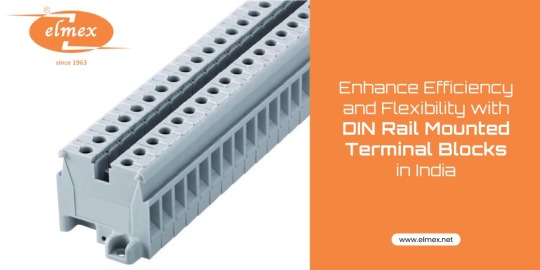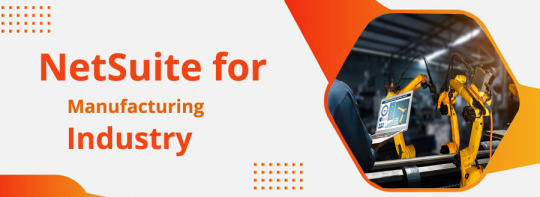#digital transformation for manufacturing
Text

Data-driven assessment is based on the analysis and interpretation of data to guide strategic business decisions that align with the goals, objectives, and initiatives of a company. It is an evidence-based approach that relies on data to make informed decisions. According to IDC, the global data is growing from 45 zettabytes in 2019 to an estimated 175 zettabytes by 2025! Backed by data, everyone in the company can be empowered to innovate and work on new ideas.
#data driven assessments#digital transformation for manufacturing#digital transformation manufacturing industry
0 notes
Text
Cloud computing uses a network of connections to store, exchange and execute commands and data for businesses on a uniform platform. Instead of using the conventional method of using multiple layers and types of communication, cloud computing uses a single platform to perform various different tasks involved in all kinds of businesses.
With the help of artificial intelligence and machine learning, a lot of complex processes in manufacturing are now made very simple and effective. The customer needs, understanding market trends and improving the end products can sometimes become challenging if you are stuck in the operational cycles. To improve and transform your manufacturing processes, you need a manufacturing cloud Computing partnership. For more information, Contact our Microsoft expert.
#manufacturing cloud Computing#digital transformation for manufacturing#Microsoft Azure manufacturing services
0 notes
Text
Enhance Efficiency and Flexibility with DIN Rail Mounted Terminal Blocks in India
Introduction:
In today's rapidly evolving industrial landscape, efficient and reliable electrical connections are crucial for ensuring smooth operations. DIN rail mounted terminal blocks have emerged as a preferred solution for creating secure and organized electrical connections in a wide range of applications. With their versatility, durability, and ease of installation, these terminal blocks have gained immense popularity among professionals in India. In this blog post, we will explore the benefits and applications of rail mounted terminal blocks and highlight their importance in the Indian industrial sector.

What are DIN Rail Mounted Terminal Blocks?
DIN rail mounted terminal blocks are electrical connectors that provide a convenient and standardized method for connecting and distributing power or signals in industrial control systems. These blocks are specifically designed to be mounted on DIN rails, which are widely used for organizing and securing electrical components in control panels, switchgear cabinets, and equipment enclosures.
Benefits of DIN Rail Mounted Terminal Blocks:
Space-saving and Modular Design: DIN rail mounted terminal blocks feature a compact design that allows for optimal use of available space. Their modular construction enables easy customization and expansion as per the specific requirements of an application, making them highly adaptable.
Secure and Reliable Connections: These terminal blocks ensure secure and reliable connections, thanks to their robust construction and advanced connection technologies. They provide a sturdy grip on wires and facilitate excellent contact, minimizing the risk of loose connections and electrical failures.
Easy Installation and Maintenance: With their tool-less and user-friendly design, DIN rail mounted terminal blocks simplify installation and maintenance procedures. The snap-on mounting feature of these blocks allows for quick and hassle-free assembly, reducing overall downtime during system installation or upgrades.
Enhanced Safety: Rail mounted terminal blocks adhere to stringent safety standards and offer features like finger-safe design, which prevents accidental contact with live components. This ensures the safety of both the equipment and the personnel working with them.
Applications of DIN Rail Mounted Terminal Blocks:
Industrial Automation: Rail mounted terminal blocks are extensively used in industrial automation systems, where they serve as a vital component for connecting sensors, actuators, motors, and other devices. These blocks provide a reliable interface for transmitting power and signals between various control elements.
Power Distribution: DIN rail mounted terminal blocks play a crucial role in power distribution systems, allowing for easy and organized connection of power supply lines to different equipment. They enable efficient energy management and facilitate the distribution of power to multiple devices within a control panel.
Building Automation: In building automation systems, DIN rail mounted terminal blocks provide a convenient solution for connecting various electrical components, such as lighting controls, HVAC systems, security systems, and more. Their modular design allows for easy integration and maintenance of these systems.
Rail Mounted Terminal Blocks in India:
The Indian industrial sector is witnessing significant growth, and the demand for reliable electrical connectivity solutions is higher than ever. Rail mounted terminal blocks have gained traction in India due to their versatility and ability to meet the diverse requirements of industries ranging from manufacturing to infrastructure development. Manufacturers and suppliers in India offer a wide range of DIN rail mounted terminal blocks, catering to different voltage and current ratings, wire sizes, and connection types.

Conclusion:
Rail mounted terminal blocks have revolutionized the electrical connectivity landscape in India, providing efficient, secure, and organized solutions for various industrial applications. Their space-saving design, ease of installation, and robust construction make them indispensable for creating reliable connections in control systems and power distribution networks. As the industrial sector continues to thrive in India, the importance of DIN rail mounted terminal blocks as a key component in electrical installations cannot be overstated. By embracing these advanced terminal blocks, Indian industries can enhance efficiency, reduce downtime, and ensure safe and reliable operations.
#Rail Mounted Terminal Blocks India#DIN Rail Mounted Terminal Blocks India#Power BusBar Terminal#Finger Safe Power Terminal blocks#Barrier Terminal Block Manufacturer in India#electrical wire termination technology#manufacturer#terminal block#DIN Rail Mounted Connectors#switchgear industry#solar product#PCB connectors#DIN rails channels#digital voltmeter#digital ammeter#power and signal#current transformer#railway#renewable energy#elmex#electrical company#electrical industry
2 notes
·
View notes
Text
Digital Transformation in Manufacturing
In the era of Industry 4.0, the landscape of manufacturing is undergoing a profound shift. Digital transformation is at the heart of this revolution, driving changes that are reshaping how products are designed, produced, and delivered. This blog post explores the impact of digital transformation in manufacturing, highlighting the key technologies, benefits, and challenges that come with this paradigm shift.

What is Digital Transformation in Manufacturing?
Digital transformation in manufacturing refers to the integration of digital technologies into every aspect of the manufacturing process. From product design and development to production and supply chain management, digital transformation enables manufacturers to optimize operations, improve efficiency, and create innovative products. The goal is to leverage technologies such as the Internet of Things (IoT), artificial intelligence (AI), big data analytics, and cloud computing to make manufacturing processes more agile, efficient, and responsive to market demands.
Key Technologies Driving Digital Transformation in Manufacturing
Several key technologies are driving the digital transformation in manufacturing:
1. Internet of Things (IoT):
IoT plays a crucial role in digital transformation by connecting machines, devices, and sensors across the manufacturing floor. These interconnected devices collect and share data in real-time, providing manufacturers with insights into equipment performance, production processes, and supply chain operations. With IoT, manufacturers can monitor and control processes remotely, reduce downtime, and enhance predictive maintenance.
2. Artificial Intelligence (AI) and Machine Learning:
AI and machine learning are revolutionizing manufacturing by enabling predictive analytics, process automation, and quality control. AI algorithms can analyze vast amounts of data to predict equipment failures, optimize production schedules, and improve product quality. Machine learning models can also learn from historical data to enhance decision-making and drive continuous improvement.
3. Big Data Analytics:
The explosion of data in manufacturing has led to the rise of big data analytics. By analyzing large datasets, manufacturers can uncover patterns and trends that were previously hidden. This data-driven approach allows for more accurate demand forecasting, inventory management, and supply chain optimization. Big data analytics also supports real-time decision-making, enabling manufacturers to respond quickly to changing market conditions.
4. Cloud Computing:
Cloud computing provides manufacturers with scalable and flexible computing resources, allowing them to store, process, and analyze data from anywhere in the world. Cloud-based solutions enable collaboration across different locations, streamline communication, and reduce IT infrastructure costs. Manufacturers can also leverage cloud platforms to deploy AI and IoT applications, accelerating their digital transformation journey.
5. Additive Manufacturing (3D Printing):
Additive manufacturing, or 3D printing, is another technology driving digital transformation in manufacturing. It allows manufacturers to create complex parts and prototypes quickly and cost-effectively. 3D printing also supports mass customization, enabling manufacturers to produce small batches of customized products without the need for costly retooling.
Benefits of Digital Transformation in Manufacturing

The adoption of digital technologies in manufacturing offers several significant benefits:
1. Increased Efficiency:
Digital transformation enables manufacturers to optimize their operations, reducing waste, energy consumption, and production costs. Automated processes and real-time data analytics allow for more efficient use of resources, leading to higher productivity and faster time-to-market.
2. Enhanced Product Quality:
By leveraging AI, IoT, and big data analytics, manufacturers can monitor production processes more closely and detect defects early. This leads to improved product quality, fewer recalls, and higher customer satisfaction.
3. Greater Agility:
Digital transformation allows manufacturers to respond more quickly to changes in market demand, supply chain disruptions, and customer preferences. With real-time data and predictive analytics, manufacturers can adjust production schedules, manage inventory, and launch new products with greater agility.
4. Innovation and Customization:
Digital technologies such as 3D printing and AI enable manufacturers to innovate and create customized products that meet specific customer needs. This ability to offer personalized products can be a significant competitive advantage in today’s market.
5. Improved Sustainability:
Digital transformation supports sustainable manufacturing practices by reducing waste, energy consumption, and carbon emissions. By optimizing processes and using data-driven decision-making, manufacturers can minimize their environmental impact and contribute to a more sustainable future.
Challenges of Digital Transformation in Manufacturing
While the benefits of digital transformation in manufacturing are substantial, there are also challenges that manufacturers must overcome:
1. High Initial Costs:
The implementation of digital technologies requires significant investment in new equipment, software, and infrastructure. For many manufacturers, the high initial costs can be a barrier to adopting digital transformation.
2. Data Security and Privacy Concerns:
With the increasing use of IoT devices and cloud computing, data security and privacy have become critical concerns. Manufacturers must ensure that their digital systems are secure and that sensitive data is protected from cyber threats.
3. Skills Gap:
The adoption of digital technologies requires a workforce with new skills in areas such as data analytics, AI, and IoT. Manufacturers may face challenges in recruiting and training employees with the necessary expertise to drive digital transformation.
4. Integration with Legacy Systems:
Many manufacturers still rely on legacy systems that were not designed to work with modern digital technologies. Integrating these systems with new digital tools can be complex and costly, requiring careful planning and execution.
The Future of Manufacturing in the Digital Age
The future of manufacturing is undeniably digital. As more manufacturers embrace digital transformation, we can expect to see continued innovation and growth in the industry. Technologies such as AI, IoT, and 3D printing will continue to evolve, offering new opportunities for manufacturers to improve efficiency, quality, and sustainability. However, success in this digital age will require manufacturers to address the challenges of digital transformation, invest in the right technologies, and build a skilled workforce capable of leveraging these tools effectively.
Conclusion:
Digital transformation in manufacturing is not just a trend—it’s a necessity for staying competitive in today’s fast-paced, technology-driven world. By adopting digital technologies, manufacturers can enhance their operations, create innovative products, and respond more quickly to market demands. While the journey to digital transformation may present challenges, the potential rewards make it a worthwhile investment for any manufacturer looking to thrive in the 21st century.
#manufacturing in digital transformation#Digital Transformation in Manufacturing#Intelisenseit#Microsoft
0 notes
Text
#industrial iot#technology#iot app development#iot development company#smart manufacturing#industrial IoT#smart factories#manufacturing technology#digital transformation#Industry 4.0#IoT in manufacturing
0 notes
Text
#industrial metaverse#digital transformation#smart manufacturing#virtual workspace#technologynews#electronicsnews
0 notes
Text
Control System Integration Services in Bangladesh: Enhancing Efficiency and Innovation
Control System Integration Services in Bangladesh: Enhancing Efficiency and Innovation
In recent years, Bangladesh has become a significant player in technological advancements and industrial growth. At the heart of this transformation lies the critical role of **control system integration services**. These services are essential for modernizing and optimizing industrial processes across various sectors. This blog delves into the importance of control system integration in Bangladesh, highlighting key players, emerging trends, and the benefits they bring to industries.
Understanding Control System Integration
**Control system integration** involves designing and implementing systems that manage and automate industrial processes. These systems ensure different components of production work together seamlessly, enhancing overall efficiency, reliability, and performance.
The Rising Demand in Bangladesh
Bangladesh’s industrial landscape is evolving rapidly, leading to increased demand for advanced control systems. Several factors drive this need:
1. Industrial Expansion: Bangladesh’s manufacturing sector, including textiles, pharmaceuticals, and food processing, is growing. These industries require sophisticated control systems to enhance quality, reduce downtime, and increase productivity.
2. Infrastructure Development: Investments in infrastructure projects like power plants, water treatment facilities, and smart grids create a need for effective **control system integration** to manage these complex systems.
3. Automation Trends: The global shift towards automation and digitalization is influencing Bangladeshi industries. Companies are increasingly adopting **automation technologies**, making control system integration crucial for staying competitive.
Leading Control System Integration Providers in Bangladesh
Several companies in Bangladesh specialize in **control system integration services**, offering a range of solutions:
-System Design and Implementation: Tailoring control systems to specific industry requirements, whether for new facilities or upgrades.
- Integration with Existing Systems: Ensuring new control systems work smoothly with current equipment and processes.
- Maintenance and Support: Providing ongoing maintenance and support to ensure optimal performance and address any issues.
- **Consultancy Services: Offering expert advice on best practices, system selection, and optimization strategies.
Benefits of Control System Integration
1.Increased Efficiency:Integrated control systems streamline operations, reduce manual intervention, and minimize errors, leading to higher productivity and cost savings.
2.Enhanced Quality: Automation and real-time monitoring ensure consistent product quality and compliance with industry standards.
3.Improved Safety: Advanced control systems help identify and manage potential hazards, contributing to a safer working environment.
4.Real-Time Monitoring and Control: Operators can monitor and control processes in real-time, facilitating quicker decision-making and problem resolution.
5.Scalability: Integrated systems can be easily scaled or modified as businesses grow, offering long-term flexibility and value.
Challenges and Opportunities
While the advantages are substantial, there are challenges, such as the need for skilled professionals, the cost of advanced technologies, and integrating new systems with existing infrastructure. These challenges, however, also present opportunities for innovation and growth. By investing in training and adopting cutting-edge technologies, Bangladeshi companies can lead in industry advancements.
The Future of Control System Integration in Bangladesh
The future for **control system integration** in Bangladesh looks bright. With ongoing industrial growth, technological advancements, and a supportive business environment, the sector is set for further expansion. Companies that adopt advanced control systems will not only enhance their operational efficiency but also contribute to Bangladesh’s economic development.
In conclusion, **control system integration services** are pivotal in modernizing Bangladesh’s industrial sector. By boosting efficiency, safety, and quality, these services drive innovation and establish Bangladesh as a leader in industrial automation. Embracing these advancements will be key to sustaining growth and achieving long-term success in the country’s evolving industrial landscape.
Feel free to adjust this blog according to your specific focus or target audience!
#Control System Integration#Industrial Automation#Bangladesh Technology#Automation Services#Industrial Efficiency#Manufacturing Solutions#Process Optimization#Smart Manufacturing#Infrastructure Development#Real-Time Monitoring#Automation Trends#Industrial Growth Bangladesh#System Integration Services#Technology Innovation#Quality Control Systems#Safety in Industry#Digital Transformation#Engineering Solutions#Advanced Control Systems#Industrial Automation Bangladesh
1 note
·
View note
Text
Unlocking Manufacturing Excellence: The ServiceNow Revolut
There is constant evolution in the industrial landscape today, and the manufacturing sector is no exception. Due to increased competition, technological advancements, and changing consumer demands, manufacturers face unprecedented challenges today. Introducing ServiceNow, a revolutionary platform for improving productivity, achieving excellence, and improving operations. This article discusses how ServiceNow is transforming manufacturing, driving efficiency, and driving innovation within the industry.

Understanding ServiceNow
Using ServiceNow, you can streamline and automate business processes. Although it was originally known for its IT service management (ITSM) solutions, ServiceNow has expanded to address a variety of business needs, including human resources, customer service, and manufacturing. As a result of its versatility and scalability, it is an ideal choice for manufacturing companies seeking to integrate disparate systems, optimize workflows, and improve overall operational efficiency.
The Need for Transformation in Manufacturing
ServiceNow streamlines and automates business processes. The company now offers human resource management (HRM), customer service, and manufacturing solutions as well as IT service management (ITSM). Through its versatility and scalability, it is possible to integrate disparate systems, optimize workflows, and improve overall operational efficiency.
Streamlining Operations with ServiceNow
The ability of ServiceNow to streamline manufacturing operations is one of its most significant advantages. Using ServiceNow, you can automate routine tasks, integrate multiple systems, and reduce manual errors. You can also make better decisions faster. As a result of this enhanced efficiency, production cycles are shortened, downtime is reduced, and manufacturing is ultimately more agile.
Enhancing Supply Chain Visibility
To maintain production schedules and meet customer demands, the supply chain must be efficient. In addition to providing real-time visibility into all aspects of the supply chain, ServiceNow offers robust supply chain management solutions. Manufacturing companies can monitor and manage their supply chains more effectively, ensuring timely delivery of materials, optimizing inventory levels, and mitigating risks associated with disruptions in the supply chain.
Improving Quality Control and Compliance
The importance of quality control in manufacturing cannot be overstated, as even the smallest faults can have very serious consequences. Using ServiceNow's quality management solutions, manufacturers can automate quality control processes, track regulatory compliance, and improve quality continuously. As a result of this proactive approach, defects are minimized, product reliability is enhanced, and international standards are met.
Empowering the Workforce
Motivation and well-equipped employees are essential to successful manufacturing operations. ServiceNow empowers employees by providing them with the information and tools they need to be efficient. The platform's employee management features facilitate seamless communication, training, and performance tracking, fostering a culture of continuous learning. Innovation and productivity are enhanced when employees are empowered.
Driving Innovation through Data Insights
Successful manufacturing operations rely on motivated, well-equipped employees. Employees are empowered by ServiceNow because it provides them with the information and tools they need to be efficient. A culture of continuous learning and development is fostered by the platform's employee management features, which facilitate seamless communication, training, and performance tracking. The empowerment of employees boosts morale and enhances innovation and productivity.
Enhancing Customer Experience
The manufacturing industry places a high priority on customer satisfaction. Manufacturing companies can streamline customer service processes, improve response times, and provide personalized support using ServiceNow's customer service management solutions. Customer feedback can help manufacturing companies improve their products and services continuously.
Facilitating Collaboration and Communication
Communication and collaboration are essential in a manufacturing environment where different departments and stakeholders need to coordinate. Using ServiceNow's integrated platform, teams, suppliers, and partners can communicate seamlessly. In this way, bottlenecks are reduced, project management is improved, and everyone is aligned towards the same goal.
Optimizing Asset Management
As part of asset management, manufacturing equipment and machinery are monitored and maintained. Manufacturing companies can monitor the health and performance of their assets in real-time with ServiceNow's asset management solutions. Maintenance schedules can be automated, asset lifecycles can be tracked, and potential failures can be predicted, reducing maintenance costs, extending equipment lifespan, and minimizing downtime.
Enhancing Environmental Sustainability
The concept of sustainability is becoming increasingly important to manufacturers around the world. By providing tools for monitoring and managing environmental impacts, ServiceNow supports environmental sustainability initiatives. With ServiceNow, manufacturers can track energy consumption, manage waste and emissions, reduce their carbon footprint, and contribute to global environmental conservation.
Real-World Success Stories
ServiceNow has already proven beneficial to a number of manufacturers. The supply chain operations of an automotive manufacturer were streamlined using ServiceNow, which led to a 20% reduction in lead times. Using ServiceNow's quality management solutions, an electronic product manufacturer reduced defect rates by 15%..
The Future of Manufacturing with ServiceNow
ServiceNow is at the center of manufacturing's digital transformation, which is unquestionably the future of manufacturing. Manufacturing companies will increasingly rely on ServiceNow to harness IoT, AI, and machine learning technologies. The platform's flexibility and scalability enable manufacturers to stay competitive by adapting to future challenges and opportunities.
Conclusion
With ServiceNow, manufacturing operations can be streamlined, supply chains can be viewed more clearly, quality control can be improved, the workforce can be empowered, and innovation can be driven. The capabilities of ServiceNow enable manufacturers to achieve new levels of efficiency, agility, and excellence. As the manufacturing industry evolves, manufacturers will need to embrace digital transformation with ServiceNow in order to remain competitive.
FAQs
1. What is ServiceNow?
ServiceNow is a cloud-based platform that automates and streamlines business processes, offering solutions for IT service management, human resources, customer service, and manufacturing.
2. How does ServiceNow improve supply chain management in manufacturing?
ServiceNow enhances supply chain management by providing real-time visibility, optimizing inventory levels, and ensuring timely delivery of materials, thereby reducing risks and improving efficiency.
3. Can ServiceNow help with quality control in manufacturing?
Yes, ServiceNow's quality management solutions automate quality control processes, track compliance with regulations, and provide analytics for continuous improvement, ensuring high product standards.
4. How does ServiceNow empower the manufacturing workforce?
ServiceNow empowers employees by facilitating communication, training, and performance tracking, fostering a culture of continuous learning and development, and enhancing overall productivity.
5. What role does data play in ServiceNow's approach to manufacturing?
ServiceNow leverages data analytics and machine learning to provide insights into operations, enabling manufacturers to identify trends, predict maintenance needs, and drive innovation for continuous improvement.
0 notes
Text
India: The Emerging Global Hub for Manufacturing, Maintenance, and Logistics
Imagine a world where India isn’t just the land of vibrant cultures, ancient history, and spicy curry but also the backbone of global manufacturing, maintenance, and logistics. This vision is rapidly becoming a reality, transforming India’s role in the global economy and military alliances. As this transformation unfolds, the implications are profound, setting the stage for India to become an…
#2024#aerospace industry#allied nations#armed forces#defense sector#digital transformation#diplomatic ties#economic development#economic growth#geopolitical significance#global hub#Global Supply Chain#India#Indo-Pacific#industrial corridors#infrastructure#international partnerships#Logistics#maintenance#Make in India#Manufacturing#maritime services#non-alignment#QUAD#regional-security#repairs#skilled labor#strategic location#Strategic-Alliances#technological advancements
0 notes
Text
IoT in Manufacturing Market is Estimated to Witness High Growth Owing to Need for Streamlining Operations

The IoT in manufacturing market involves connecting and integrating physical devices, sensors, and other smart objects into the manufacturing operations through the use of networking and cloud technologies. It enables the collection of information from various manufacturing equipment and assets and utilizes analytics tools to analyze the collected data to optimize operations. IoT allows manufacturers to drive improvements in equipment performance, reduce downtime, improve quality control, and optimize logistics and inventory management. The advantages of IoT in manufacturing include increased productivity, predictive maintenance, asset monitoring, inventory management, and energy management. The need for streamlined operations, improved asset utilization, and reduced maintenance costs through advanced monitoring and predictive analytics is fueling the demand for IoT in manufacturing.
The global IoT in manufacturing market size was valued at US$ 198.8 billion in 2022 and is anticipated to witness a compound annual growth rate (CAGR) of 18.4% from 2023 to 2030.
Key Takeaways
Key players operating in the IoT in Manufacturing are EnableX.io (VCLOUDX PTE. LTD), Twilio Inc., Infobip Ltd., Vonage Holdings Corp, M800 Limited, MessageBird BV, Iotum Inc., Plivo Inc., Voxbone SA, Snich AB, Telestax, Voximplant (Zingaya Inc.), Mitel Networks Corporation, 8x8 Inc., AT&T Inc., Voxvalley Technologies, Avaya Inc., Bandwidth Inc. (Bandwidth.com), Wazo Communication Inc., and IntelePeer Cloud Communications. These players are focusing on developing advanced IoT solutions and services for manufacturing applications.
The key opportunities in the Iot In Manufacturing Market Forecast include predictive maintenance through condition monitoring of equipment, remote asset management through sensors and connectivity, improving supply chain visibility, and optimizing energy consumption. Adoption of advanced analytics is also opening up new revenue streams through data monetization.
North America is expected to continue dominating the global IoT in manufacturing market during the forecast period owing to the presence of many global players and early adoption. However, Asia Pacific is expected to witness the highest growth attributed to increasing investments by governments and manufacturers in smart factory initiatives to drive industry 4.0. Countries like China, India, Japan, and South Korea are emerging as global manufacturing hubs and rapidly adopting IoT technologies.
Market drivers
The key driver fueling the growth of IoT in manufacturing is the need for streamlining operations through real-time data collection, monitoring, and analytics. IoT allows connecting all manufacturing assets and enables data-driven decision making for predictive maintenance, quality control, inventory management, and production planning. This helps reduce downtime, save costs, improve overall equipment effectiveness, and enhance operational efficiency. IoT also enables remote asset management and driving energy efficiency initiatives through connected smart systems and remote asset performance monitoring.
PEST Analysis
Political: IoT in manufacturing market is affected by government regulations around data privacy and security. Stricter privacy laws make it challenging for businesses to collect and use customer data. On the other hand, regulations supporting industry digitization creates opportunities for IoT solutions.
Economic: Factors like global economic growth, industrial production levels, and investment in automation impact demand for IoT systems in manufacturing. During recessionary periods, organizations may delay IoT deployments to control costs.
Social: Younger workforce is more receptive to new technologies. Skill gaps challenge wider IoT adoption. Awareness programs help promote social acceptance of advanced manufacturing technologies.
Technological: Emerging technologies like AI, 5G, edge computing, and blockchain offer new possibilities for optimizing manufacturing processes. However, integrating legacy systems with advanced IoT platforms poses technological challenges. Security also remains a key concern with expanding network connectivity.
The geographical regions where the IoT in manufacturing market is concentrated in terms of value are North America and Europe. North America accounts for the largest share mainly due to early adoption of Industry 4.0 technologies by US factories.
The Asia Pacific region is projected to be the fastest growing market during the forecast period. This is because key developing economies like China and India are making heavy investments to automate their manufacturing industries using industrial IoT solutions. China's "Made in China 2025" initiative advocates implementation of IoT, robotics, and other innovative technologies across manufacturing sectors.
Get more insights on Iot In Manufacturing Market
About Author:
Money Singh is a seasoned content writer with over four years of experience in the market research sector. Her expertise spans various industries, including food and beverages, biotechnology, chemical and materials, defense and aerospace, consumer goods, etc. (https://www.linkedin.com/in/money-singh-590844163)
#Coherent Market Insights#Iot In Manufacturing Market#Iot In Manufacturing#Smart Manufacturing#Industry 4.0#Digital Transformation#Automation#Industrial Iot#Iiot#Connected Devices#Sensors
0 notes
Text
Transform Your Manufacturing Business with Salesforce Integration Services

Unlock the full potential of your manufacturing operations with our top-notch Salesforce Integration Services.
Seamlessly integrate Salesforce with your existing systems to streamline processes, enhance productivity, and drive innovation.
Our expert team ensures a smooth transition, enabling you to focus on what you do best – manufacturing excellence.
Partner with us to experience a digital transformation that boosts efficiency and accelerates growth.
#salesforce crm#sf integration services#manufacturing business#Fexle services#salesforce partner#Digital transformation
0 notes
Text

To achieve data-driven manufacturing excellence, a structured approach is essential. With our comprehensive assessment, we enable manufacturers to better understand their operations by focusing on the accuracy and integrity of their data.
0 notes
Text

The Bioprocessing Summit 2024
https://expopeak.com/event/the-bioprocessing-summit-2024/
#Accelerating#Analytical#Bioprocessing#And#Bioengineering#Equipment#Materials#Services#bioprocessing#regulatory#BioProduction#Scale#Bioreactors#Disposals#Opt#Cell#Line#Culture#Therapy#CMC#Analytics#Manufacturing#Continuous#Processing#Digital#Transformation#AI#Venture#Downstream#Process
0 notes
Text
Moving manufacturing into the competitive 4th Industrial Revolution world demands a phased approach, typically over 5 stages and resulting in a Smart Factory. The seamless integration of cutting-edge technology with skilled human expertise creates an environment of unparalleled productivity and innovation.
Read our blog to learn about the stages through which you can transform your traditional manufacturing facility into a smart factory
#manufacturing#manufacturing industry#smart factory#digital transformation#it consulting#tech#technology
0 notes
Text

Tips for Buying a Voltage Stabilizer for Home
There is no denying just how useful a device created by the premier digital stabilizers manufacturer is. In fact, only a fool would say no to having them inside their homes.
Source Link: https://shaktielectricalcorporation.medium.com/tips-for-buying-a-voltage-stabilizer-for-home-0a1da465701f
#servo voltage stabilizer#digital stabilizers manufacturer#servo voltage stabilizer manufacturer#voltage stabilizer#transformer#electrical#voltage regulator#servo voltage stabilizers
0 notes
Text
Advanced NetSuite Manufacturing Revives Production Efficiency

Advanced Manufacturing in NetSuite delivers a single and unified business solution that replaces disparate and disconnected systems and helps modern-day Manufacturers thrive in the evolving landscape with Advanced Automated Capabilities.
For the most part, Advanced Manufacturing NetSuite is orchestrated on native NetSuite ERP. Given these points, it helps ensure that all manufacturing processes are extensively connected to financial reports, inventory management, and outstanding orders in real time.
Some of the highlighting features of Advanced Manufacturing NetSuite covers
Planning and Scheduling
Shop floor capabilities
Resource utilization
Discrete or Assembly Manufacturing Capabilities
Finite Production Scheduling
Work Order Release capabilities
Batch or Process Manufacturing capabilities
Recipe or Formulation capabilities
Raw and Bulk Lot Control
In addition, modern-day manufacturing units can make the most of Advanced Manufacturing NetSuite to gain complete control of all aspects of their manufacturing or production processes including finite capacity, scheduling, and manufacturing execution.
Advanced Inventory NetSuite
In general, the deployment of Advanced Inventory NetSuite helps modern-day production and distribution businesses drive the capability required for robust manufacturing operations management and retain customer engagement in the long run. For the most part, Advanced Inventory Management in NetSuite
Delivers inventive features such as
Demand-based Inventory Replenishment
Inventory Control
Lot Management
Bin Management
Return Merchandize Authorization
Pick, Pack, and Ship Management
In particular, the Advanced Inventory Management NetSuite is a crucial part and function of Advanced Manufacturing NetSuite.
Advanced NetSuite Support
To make the most of NetSuite capabilities, optimize ERP usage, and multiply the business benefits of Advanced Inventory NetSuite or Advanced Manufacturing NetSuite, get Advanced NetSuite Support.
At inoday, #1 ORACLE NetSuite Channel Partner, you can avail of impressive customer services, including Advanced Customer Support NetSuite.
For the most part, businesses relying on our Certified NetSuite Consultants are managing key operations under the aegis of Expertise, Exposure, and Experience.
Undeniably, by offering Advanced NetSuite Support, we help you make the best of global consulting, implementation support, and services with deep knowledge across NetSuite Solutions.
In particular, these subject-matter experts help you scale up with Advanced Customer Support in NetSuite and let you overcome critical issues, without a hitch.
At inoday, thriving manufacturing businesses can avail of Advanced Inventory Management in NetSuite or Advanced Manufacturing in NetSuite and ensure continued operations with Advanced Customer Services in NetSuite.
Explicitly, we leverage our 16+ years of experience in driving Digital Transformation via Cloud Computing Solutions and have excelled in Successful Deliveries of NetSuite Solutions.
We are globally recognized for our proven track records, innovative approach, and commitment to technology enhancements.
For more details, write to us at [email protected] Or Schedule A Demo
#netsuite erp#netsuite manufacturing#Advanced NetSuite Manufacturing#netsuite#Digital Transformation
0 notes